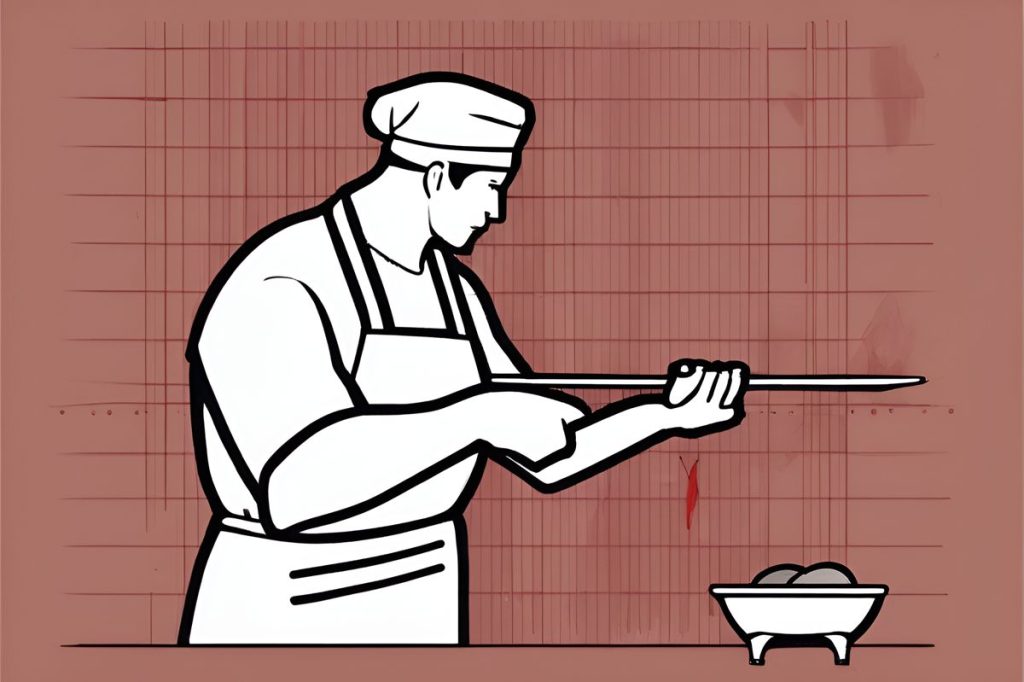The government’s attempt to impose price controls on bread faced resistance from local bakers in Northern Cyprus, who argued for the autonomy to set prices based on individual costs amidst recent hikes. Following negotiations with the economy ministry, a compromise was reached, highlighting the delicate balance between market regulation and competition law in the region.
What price control has been imposed on lamb in Northern Cyprus?
The government of Northern Cyprus has imposed a price control on lamb, capping the cost at 550TL (approximately €15.89) per kilogram. This measure aims to stabilize the market and prevent price inflation during the high-demand period of Eid al-Fitr, with strict fines for non-compliance.
In a significant move to stabilize the market, the government in Northern Cyprus has put a cap on the cost of lamb meat. Amid concerns about rising meat prices, they have decreed that lamb can be sold for no more than 550TL (approximately €15.89) per kilogram. Butchers who dare to exceed this price limit will face fines, as officials are determined to enforce this new policy strictly.
This price regulation is timely, considering the upcoming Muslim festival of Eid al-Fitr, which concludes the fasting period of Ramadan. Traditionally, there is a surge in demand for lamb during this festival, and the price control is a proactive step to prevent any unjustified price inflation that could take advantage of the increased demand.
Cross-Border Meat Purchases and Smuggling Issues
The decision to regulate lamb prices comes against a backdrop of economic challenges and consumer behavior shifts. It’s no secret that Turkish Cypriots have been crossing into the Republic to purchase meat, where prices are typically lower. This move has not only impacted local butchers financially but also prompted a rise in illicit meat trafficking between the two sides.
Authorities have been cracking down on this smuggling operation, with significant seizures made by the Turkish Cypriot police. Recent busts include the confiscation of almost two metric tonnes of beef in the Kyrenia district. Additionally, individual cases of meat smuggling have seen fines issued at key crossing points such as Ayios Dhometios and Pergamos, where substantial quantities of red meat have been intercepted.
Local Butchers Facing Economic Pressure
The plight of local butchers is becoming increasingly desperate. Faced with escalating costs and a dwindling customer base, some have taken to dramatic protest actions. In a poignant display of their distress, two lambs were slaughtered by butchers as a plea for government intervention. The butchers’ urgent demand was for a sustainable solution that would allow them to compete with prices in the Republic, thereby revitalizing their businesses.
Their grievances are starkly illustrated by the claim that unsold meat, having gone bad, is being discarded while the government seems to be ignoring the dire situation. Despite the implementation of price controls, this is not the government’s first foray into market regulation. Earlier attempts included setting a maximum price for bread, which met with resistance from bakers citing competition law violations.
Resistance from Bakers and the Government’s Response
When the government attempted to intervene in bread pricing, the bakers’ collective pushback was significant. They emphasized the need for individual bakeries to set prices based on their distinct costs, especially under the strain of recent price hikes. However, potential conflict was averted when the bakers’ demands for a meeting were met, leading to an agreement with the economy ministry.
The balance between market regulation and competition law remains a delicate issue. Previous interventions by the government have sparked debates about the feasibility and legality of enforcing price controls. Such measures, while intended to provide relief to consumers, must navigate the complex dynamics of free markets and competition.
What price control has been imposed on lamb in Northern Cyprus?
The government of Northern Cyprus has imposed a price control on lamb, capping the cost at 550TL (approximately €15.89) per kilogram. This measure aims to stabilize the market and prevent price inflation during the high-demand period of Eid al-Fitr, with strict fines for non-compliance.
What is the current situation with cross-border meat purchases and smuggling issues in the region?
Turkish Cypriots have been crossing into the Republic to purchase meat at lower prices, impacting local butchers financially and leading to a rise in illicit meat trafficking between the two sides. Authorities have been cracking down on smuggling operations, making significant seizures and issuing fines at key crossing points.
How are local butchers in Northern Cyprus being affected by the economic pressure they are facing?
Local butchers are facing escalating costs and a dwindling customer base, leading to desperate measures such as slaughtering lambs as a plea for government intervention. Despite price controls being imposed, the situation remains dire, with unsold meat being discarded.
How did the government respond to resistance from bakers when they attempted to impose price controls on bread?
When the government faced resistance from bakers regarding price controls on bread, a compromise was reached after the bakers’ demands for a meeting were met. This highlights the delicate balance between market regulation and competition law in the region.

